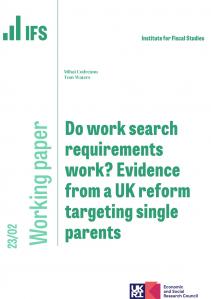On 25th November last year, George Osborne, the former Chancellor of the Exchequer, delivered his Autumn Statement and Spending Review. At the time it looked like it would be the defining budgetary event of this parliament. He planned four more years of cuts so that by 2019-20, the government’s revenues would exceed its spending—it would have balanced the budget. The Brexit vote means that these fiscal plans will be torn up. The economy is now expected to grow much less quickly, and even if Osborne’s spending plans were left in place, we can still expect to be running a sizeable budget deficit in 2020. The new defining fiscal event of the parliament looks likely to be the first Autumn Statement delivered by Philip Hammond, the new Chancellor. In his final days in office, Osborne scrapped his target of achieving a budget surplus by 2020 and this, combined with the uncertainty over our economic prospects, means that Hammond has some big judgments to make—they will be the biggest since those taken by Alistair Darling, the former Labour Chancellor, at the height of the 2008 financial crisis.
Hammond will find himself confronted by already high government borrowing and debt. He will be making decisions in a fog of uncertainty about the state of the economy and what the future holds. And whatever decisions he makes for the short run, he will also need to keep an eye on long-run sustainability. At the time of the 2008 crisis, Britain had national debt approaching 40 per cent of national income. It is now more than twice that amount following several years of large-scale government borrowing that in 2009-10 rose to around £150bn, or 10 per cent of national income.
Borrowing has since fallen, but it was still £75bn last year—4 per cent of national income. So the country goes into the post-referendum period with debt at its highest level since the late 1960s. But we also go in after six years of austerity. Spending on public services has been squeezed more than at any time since the Second World War. Even the NHS, which has been relatively protected, has experienced the tightest period of spending restraint since its earliest years. And while some taxes have been cut, since 2010 there has been an overall net tax rise.
Read the full article here








